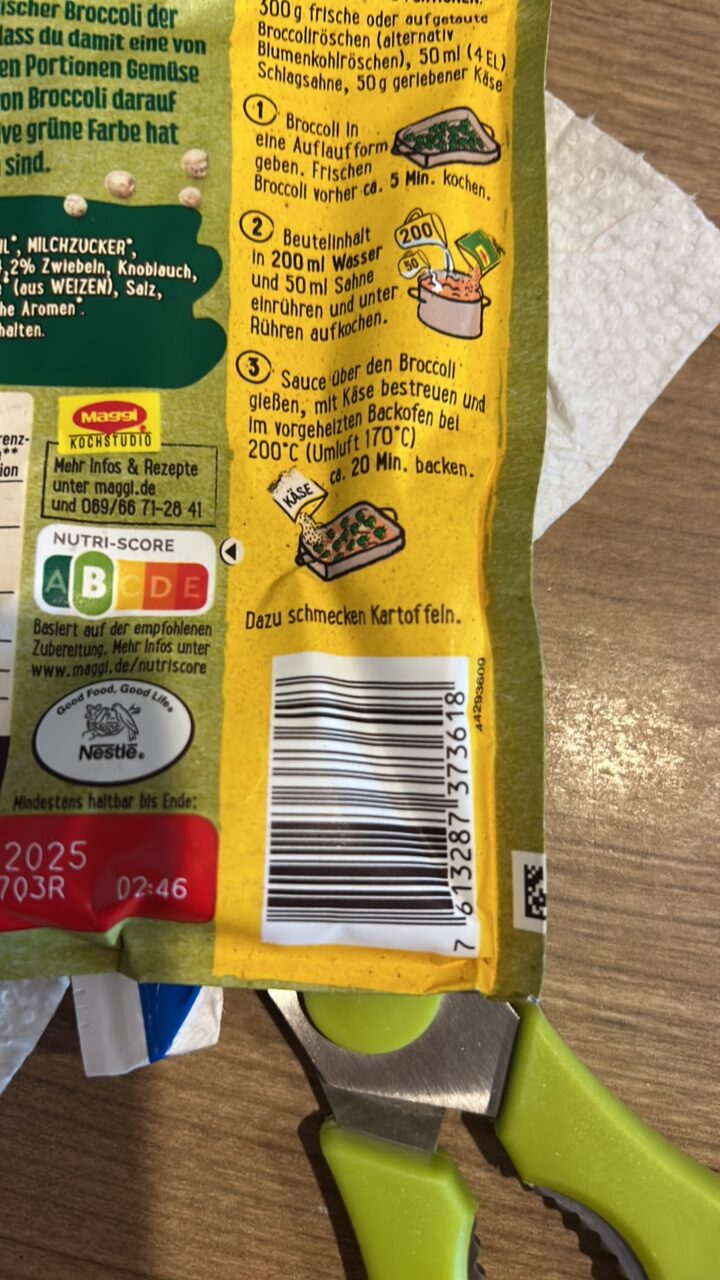
Barcode: 7613287373618
Broccoli
HALAL
📝 Reason: The product ‘Broccoli’ contains ingredients that are generally considered Halal, such as milk, milk sugar, onion, garlic, and salt. However, the term ‘aromas’ is too vague to determine its Halal status without further clarification. Islamic sources emphasize the importance of clear and permissible ingredients in food consumption.
🏷️ Category: Sauce Mix, Vegetable Dish
📄 Certificates: Nutri Score, 2025, 02:46, Vegetarisch
Ingredients:
Details
Understanding the Halal Status of Broccoli
When it comes to dietary choices, understanding the Halal status of food products is crucial for many individuals. The product in focus, Broccoli, is categorized under Sauce Mix and Vegetable Dish. In this post, we will explore the various ingredients that make up Broccoli and unveil the implications for its Halal certification.
Halal Status Overview
According to our analysis, the product Broccoli has been confirmed as HALAL. This classification is based on its ingredients, which are predominantly plant-based or derived from permissible sources. Despite this overall approval, we must delve deeper into each component to ensure comprehensive understanding.
Ingredient Breakdown
The ingredients listed for Broccoli include:
- Milk
- Milk Sugar (Lactose)
- Onion
- Garlic
- Salt
- Aromas
The Halal Nature of Each Ingredient
Let’s break down the Halal status of each ingredient:
1. Milk
Status: Halal
Milk is considered Halal unless it has been contaminated with Haram substances. You can find more information about Halal dairy products on credible Islamic sites, such as IslamWeb.
2. Milk Sugar (Lactose)
Status: Halal
Derived from milk, lactose is Halal. The same reliable sources that discuss milk also verify the Halal nature of milk sugar, reinforcing the integrity of this ingredient.
3. Onion
Status: Halal
Being a plant-based component, onion is universally accepted as Halal. It adds flavor and nutritional benefits while aligning with dietary laws.
4. Garlic
Status: Halal
Similar to onion, garlic is also plant-based and consequently Halal. Its health advantages further bolster its acceptance.
5. Salt
Status: Halal
Salt is a mineral that does not fall under the category of Haram, making it wholly acceptable in Halal dietary guidelines.
6. Aromas
Status: Uncertain
The term aromas is vague and thus poses a challenge in determining its Halal status. Without specific details about the source or nature of these aromas, one cannot definitively conclude whether they are permissible. This illustrates the critical need for clear labeling in products.
Overall Halal Certification
While most ingredients of Broccoli firmly align with Halal principles, the ambiguity surrounding aromas serves as a reminder for consumers. It underscores the importance of seeking clarity from manufacturers regarding vague terms used in food labeling.
Brand, Category, and Certification Insights
The absence of a specific brand associated with the Broccoli product is notable. Nonetheless, its categorization as a Sauce Mix and Vegetable Dish signifies its intended use and market context. Additionally, it holds a Nutri Score certification, which highlights its nutritional value, though this does not directly impact its Halal status.
Conclusion
In summary, Broccoli can be considered Halal primarily due to most ingredients being derived from permissible sources. However, the uncertain status of aromas necessitates further inquiry for cautious consumers. By focusing on transparency and clarity, brands can foster trust and facilitate informed purchasing decisions. Therefore, individuals adhering to Halal dietary standards may safely enjoy Broccoli while remaining aware of ingredient definitions.
